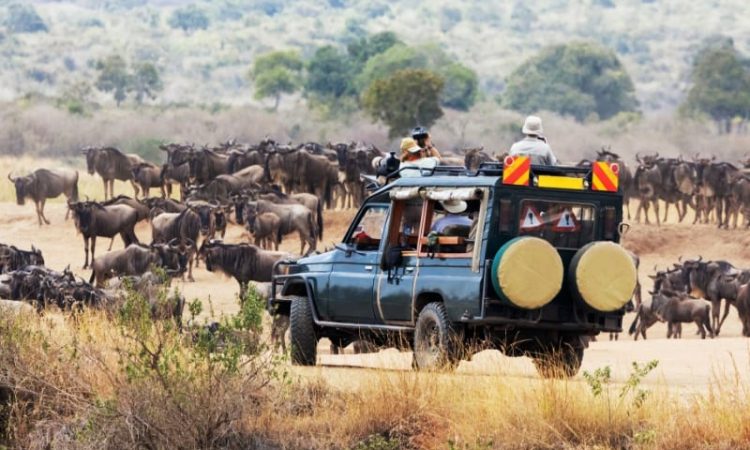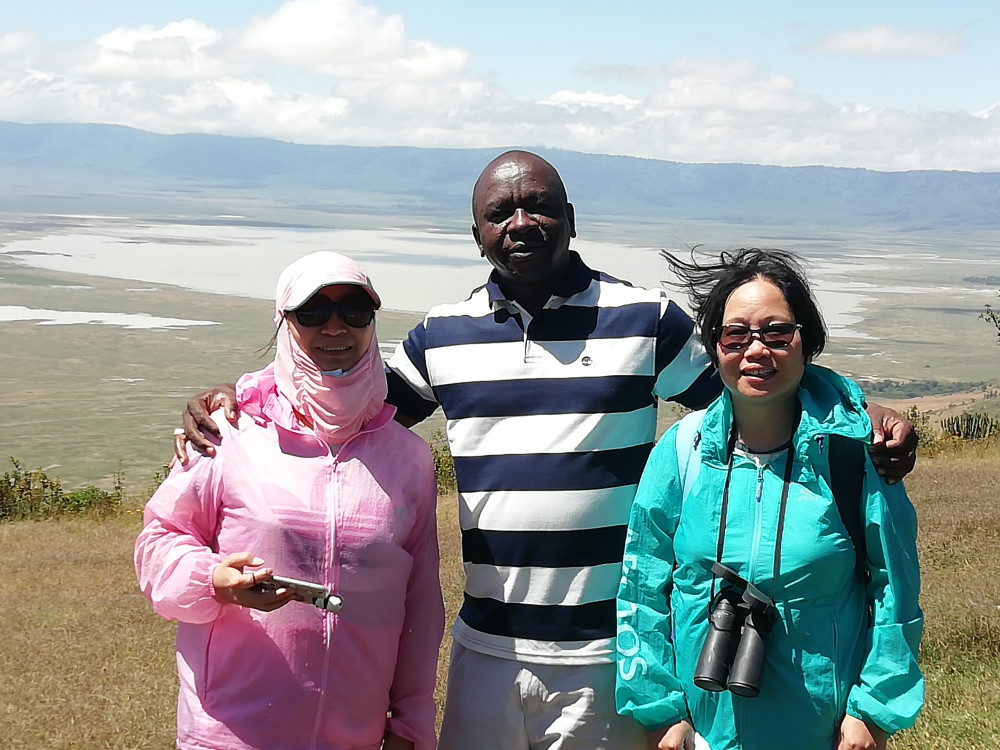Good Facts For Choosing Kenya Day Tours
Good Facts For Choosing Kenya Day Tours
Blog Article
What Are The Precautions To Stay Healthy I Must Take Before Travelling To Mombasa, Kenya For A Vacation?
It is essential to take health precautions while visiting Mombasa in Kenya. This will help ensure that you are enjoying your trip and stay protected. Here are a few of the major health concerns:
1. Vaccinations
Routine Vaccinations: Ensure that you are up-to-date on routine vaccines such as measles-mumps-rubella (MMR), diphtheria-tetanus-pertussis, varicella (chickenpox), polio, and your yearly flu shot.
Hepatitis A is advised for all travelers because of the possibility that food or water could be contaminated.
Hepatitis B travelers who may be exposed to blood or bodily fluids through sexual contact, medical treatment, or drug usage should be informed.
Typhoid vaccination is recommended to all travelers, especially those traveling to rural or small regions, staying with relatives, or eating in unfamiliar locations.
Yellow Fever: A certificate of vaccination might be required for travelers arriving from countries with a possibility of transmission of yellow fever. Find the most current guidelines.
Rabies: A consideration for those involved with outdoor activities that place them at risk of bites, such as hiking, camping, or caving.
2. Malaria Prevention
Mombasa is an area with the highest rate of malaria. Ask your doctor for the best antimalarial treatment for you.
Utilize insect repellents made of DEET with long sleeves, long pants, and an insect net to prevent bites from mosquitoes, especially during the night.
3. Food and Water Safety
Use only bottled water or boiling drinking water. Avoid drinking tap water, ice, and drinks that aren't sealed.
Be Safe: Eat only properly cooked food. Avoid eating raw or undercooked seafood, meats as well as unwashed vegetables and fruits. Be cautious when eating street food. Choose reputable dining places instead.
4. Diarrhea in Travelers
Prevention measures: Wash your hands often using soap or water. Avoid eating and drinking drinks or food that have been questioned.
Keep medicines like loperamide, (Imodium) and oral rehydration tablets in your pocket. In the case of severe cases, you may need consult with your physician.
5. Sun Protection
Apply a sunscreen with at least 30 SPF. Reapply often, especially after sweating and swimming.
Wear hats and sunglasses to shield your eyes from the sunlight. Also, dress in light, long sleeved clothes.
6. Heating and Hydration
Keep hydrated: Drink plenty of fluids to avoid dehydration, especially water. Avoid drinking alcohol and caffeine since they can dehydrate you.
Beware of overexertion. Take a break and take a rest during times when the sun is at its most intense. To avoid heatstroke and heat exhaustion, look for shade and cool places.
7. Water Activities: Safety and Security
Swim in Areas Delineated: Make note of local recommendations and conditions for swimming, as well as any possible risks, such as a strong current.
Marine Life Awareness: Avoid dangerous marine life, like jellyfishes and sea urchins. Wear watershoes when walking on the water's surface.
8. Care and Insurance. Care and Insurance
Travel Insurance: Ensure you have a comprehensive travel insurance which includes medical evacuations and emergencies.
Local Medical Facilities Become familiar your self with the locations of reputable medical centers in Mombasa. Many hotels offer details of nearby hospitals and doctors.
You'll need your medications, as well as prescriptions in the form of copies.
9. Emergency Contacts
Please contact the Embassy in your country to obtain their contact information.
Local Emergency Numbers: Know the local emergency numbers including Police (999), Fire (999), and Ambulance (999).
Enjoy your time in Mombasa and avoid the dangers by following these simple health tips. See the best kenya holiday packages for website advice including luxurious african safari, trip tour companies, trips to kenya, tour and travels, tours and safaris, safaris beach, mombasa packages, afri safari, kenya safari holiday, safari trips in africa and more.
What Do I Need To Be Aware Of About The Weather In Mombasa While I Am On Vacation?
Understanding the weather patterns in Mombasa is vital to packing your bags and getting the best enjoyment of your trip. Here are the most important weather considerations.
1. Climate Overview
The climate in Mombasa is tropical and humid all year. Expect warm weather with temperatures ranging between 24degC (75degF) to 32degC (90degF).
2. Seasons
The season of hot and humid (November to April) In this time the temperatures are extremely high, and the humidity is high. The peak tourist season is January and December.
Long Rains from April to June: Heavy rainfall and storms are common throughout the time of heavy rain. It is often difficult to drive on muddy roads. It is a time of low-season tourism.
Cooler Season (June to October) Take advantage of the cooler temperatures and less humidity during this period. The weather is usually comfortable and suitable for outdoor sports.
Short Rains (October October - November): These are short, less intense rainshowers. The rains are usually short, and then followed by sun.
3. Packing Tips
Lightweight Clothing - Pack clothes that's breathable and lightweight such as cotton or linen to keep cool during the summer months when it's hot and humid.
Rain Gear - If traveling during the rainy season ensure you bring an outfit with a water-resistant coating, a raincoat, as well as footwear that is waterproof.
Sun protection Wearing a hat that has a a large brim, wearing sunglasses, and wearing light clothing to cover your skin all can help you stay safe from the sun.
Wearing Swimwear: Be sure to bring your swimsuit at all times you visit the hotel pools and beaches.
4. Weather-specific activities
Beach Time: The best time to enjoy beach activities is in the cooler seasons (June to October) when the weather is pleasant and the conditions for swimming are ideal.
From November to March the calm and clear waters are perfect for water sports such as snorkeling, diving, and much more.
Wildlife viewing: As the weather gets better, it is a great time to go on safaris and safaris and wildlife tours.
5. Considerations of Health
Keep hydrated. The hot and humid conditions will force you to keep hydrated. Take plenty of fluids particularly when you're spending time outside.
Health-related conditions: Be aware to heat exhaustion, heat stroke and other heat-related diseases. Wear loose clothing and take breaks in the shade, and avoid intense exercise in the heat of the day.
6. Travel Adjustments
Rainy Season Travel: Prepare yourself for disruptions to travel during prolonged rainstorms. The disruption of travel could be due to roads that are not passable and the limited outdoor activities.
The rainy season may cause delays on flights. Be aware of your travel schedule and have contingency plans.
7. Environmental Considerations
Natural Hazards. Be aware of the risk of flooding in heavy rains. Be aware of current weather conditions, and follow local recommendations regarding security.
Make sure you are conscious of the tides. They can be very different. Check local tide calendars to ensure safe beach and swimming.
If you are aware of the significance of the weather, you'll be prepared to plan your vacation, pack correctly, and ensure that your stay in Mombasa is safe. Follow the most popular kenya day tours for website info including mombasa beach kenya, mombasa safaris kenya, kenya safari and beach, kenya africa travel, kenya safaris, safaris beach, kenya travel packages, safari company kenya, safari trips in kenya, tour and travel company and more.
What Financial Planning Considerations Do I Need To Know When Holidaying In Mombasa Kenya?
Financial planning is essential when you're on holiday in Mombasa. Consider these financial factors:
1. Budgeting
Accommodation: Make reservations for your accommodations early enough to reserve your accommodation. The cost of lodging can vary widely depending on its kind and its place of residence.
Transportation: Include cost for travel, flights (taxis matatus tuktuks car rentals) and outings.
Budget for food and dining, including eating out and snacks. Costs can vary from budget-friendly local eateries to expensive restaurant chains.
Make plans ahead for your activities and tours. These can include guided tours, entry costs to attractions, and water sports such as safaris and cultural tours.
2. Currency and exchange rates
Kenyan Shilling (KES): This is the currency used in Kenya. Familiarize yourself with the exchange rate.
Currency Exchange: Exchange money at banks that are reputable, currency exchange bureaus, or in your hotel. Don't exchange money in the street.
ATMs: ATMs are readily available in Mombasa. Check that your card is compatible with international withdrawals, and take note of any charges.
3. Payment Methods
Cash: Carry some cash to pay for small expenses, tips, and places that don't take credit cards.
Credit and debit cards: Major credit cards are accepted at restaurants, hotels, as well as larger retail stores. Tell your bank about your travel plans to avoid your card being denied access to your card.
Mobile Payments M-Pesa is an online payment system widely utilized in Kenya. This is useful to local SIM cards.
4. How to save money
Travel off-season. By traveling in the shoulder or off-season (April to October, and November through April) You can save cash on hotels, flights and other travel expenses.
Make sure to book in advance to secure better deals on flights.
Local Eateries - Eat at local eateries and food stalls for an authentic experience and affordable prices.
5. Tipping
Tipping in Kenya is a normal procedure in Kenya. A minimum tip of 10% is expected in restaurants if the service isn't included. Tipping the hotel staff is your discretion.
The amount: A small amount in local currency is appreciated. For example, give the porters KES 50-100 a bag and the housekeepers KES100 a day.
6. Emergency Funds
Reserve funds: Make sure to have an emergency fund on hand, and that you have the ability to access additional funds via credit card or debit card, if needed.
Travel Insurance: Make sure you have a comprehensive travel insurance that covers cancellations, medical emergencies, and loss of property.
7. Security
Hotel safes are an excellent location to store valuables such as passports and extra cash. Be cautious when using an ATM particularly at night.
Avoid Carrying Big Sums. Do not carry large cash sums with you. Keep your money and cards in your wallet, and then put them in a secure area.
8. Local Transactions
Bargaining is a common practice at local markets. Approach it with respect and smile, and strive to get a fair price.
Keep records or receipts of major transactions. These can be very helpful for budget tracking and if there are any disputes.
9. Understanding Fees
The bank you use may charge fees for withdrawals from abroad. Certain ATMs might charge an additional fee when making use of foreign credit cards.
Charges for Currency Conversion Be aware of fees your bank may charge you for currency conversion when using your debit or credit card abroad.
If you take into consideration these financial planning considerations, you can manage your expenses effectively and enjoy your holiday without worry in Mombasa. Check out the recommended island snorkeling in mombasa for website recommendations including safari tour, africa safaris and tours, tour company in kenya, african safari africa, african safari tours, mombasa travel agency, safari and tours, tour company, tour company in kenya, africa tours and more.